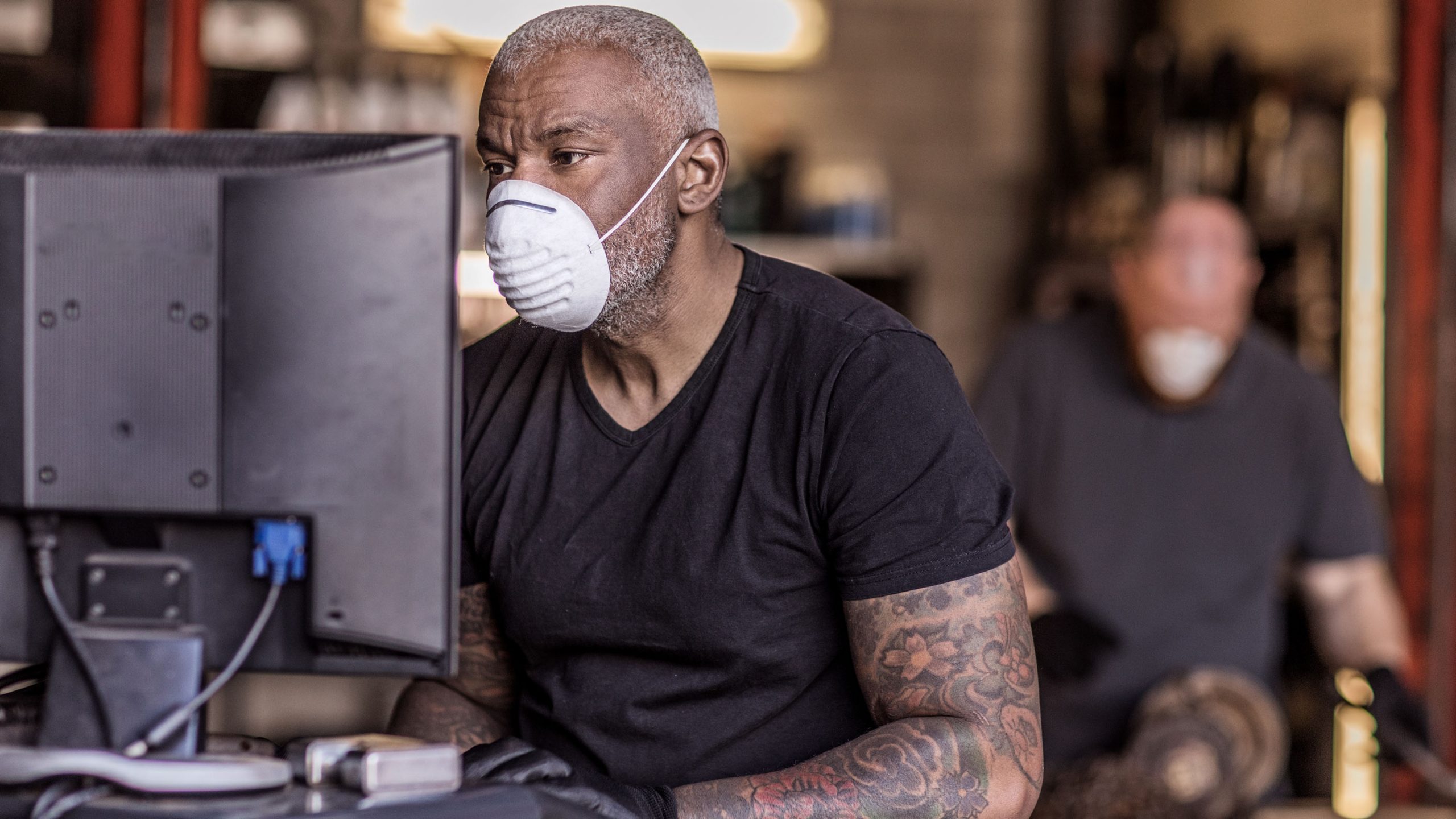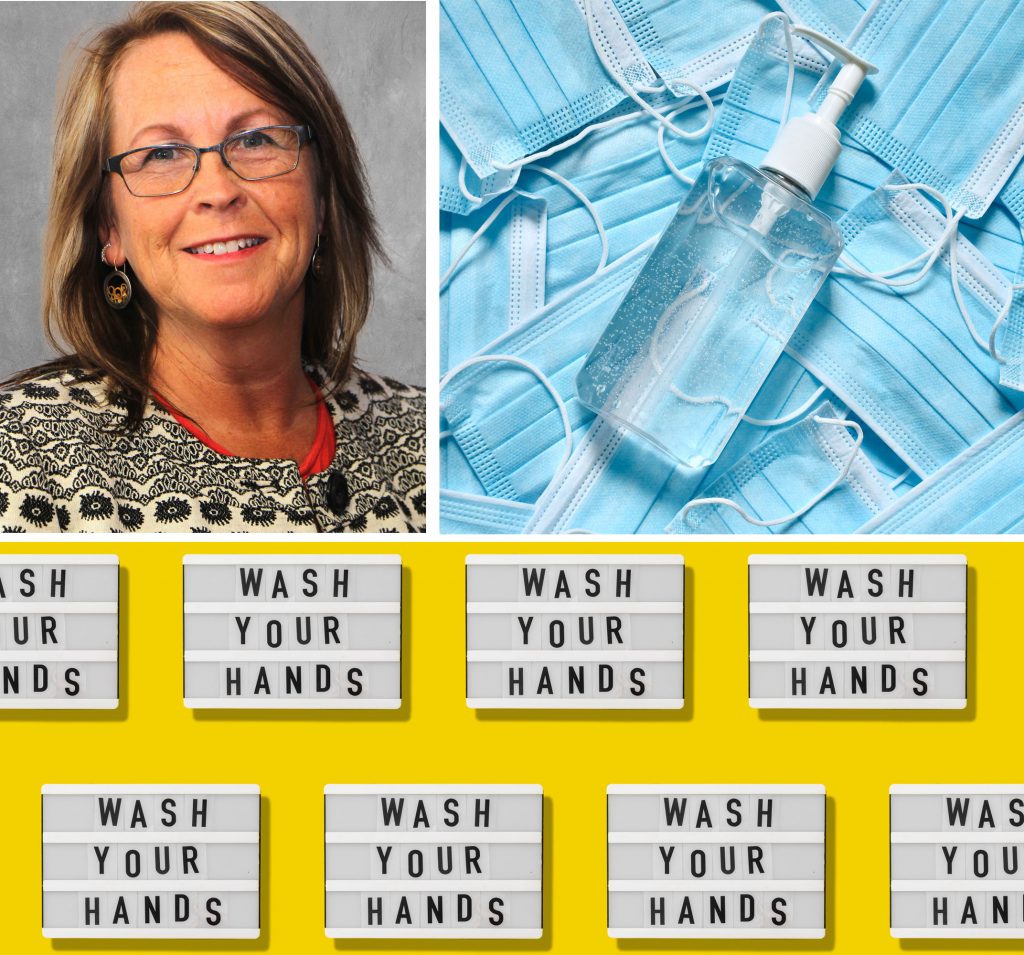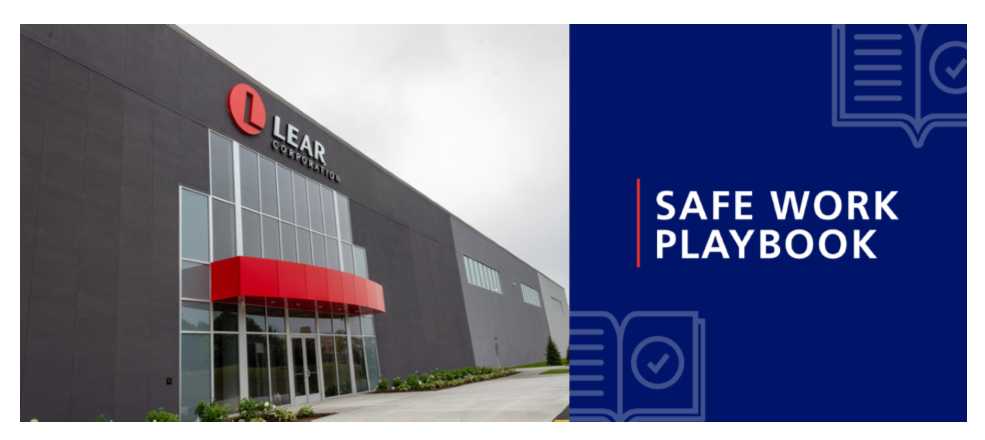
More frequent hand-washing breaks and other enhanced sanitation practices. Supplying face masks for employees to wear on the job. A sharp increase in the use of videoconferencing.
Those were among the practices implemented by area businesses that continued to operate in at least a reduced capacity as the economy otherwise drastically slowed in the wake of the COVID-19 outbreak.
And now, with Gov. Gretchen Whitmer gradually reopening sectors that were shut down in March to help stop the virus’s spread, other Genesee County businesses are trying to determine what their post-lockdown workplaces will look like.
The answers, to a large degree, will depend on how they operated before the pandemic.
“Honestly, I don’t know that anyone in our office has thought about it all that much in advance,” said Tom Shade, principal at the certified public accounting firm of Lewis & Knopf in Mundy Township.

Detailed advanced preparation for returning to a traditional work setting was difficult because the situation was constantly changing and eventual governmental requirements were unknown, he said.
“We’re still trying to get our arms around the rules,” Shade said, in late April. “For now, we’re all working from home, and that’s probably going to continue for a while.”
Indeed, legal and other advisers were encouraging employers to allow workers whose job functions allowed them to telecommute to continue to do so for as long as possible.

But other businesses that require an onsite workforce, such as manufacturing facilities, will need more immediate and specific plans – not just to ensure the safety of employees and meet governmental regulations, but also for more bottom-line business reasons.
For example, Genesee Packaging, Inc. President and CEO Jane Worthing (below) noted that customers that were planning to reopen had contacted the company to ensure it had a COVID-19 response plan in place.

Their intent was to seek reassurance that Flint-based Genesee Packaging would remain a reliable and responsible supplier — “that we have plans and are paying attention to everything,” she said.
As a supplier to General Motors Customer Care and Aftersales business, Genesee Packaging has remained open throughout the coronavirus crisis because auto repair was categorized as an essential service by the Whitmer administration.
So she spoke from experience when she said that maintaining operations in the time of COVID-19 is “a changing, fluctuating situation.”
Genesee Packaging, which was operating with about a third of its usual 125-person workforce, did not have to significantly alter its production processes to meet social distancing guidelines because workers were already spaced far enough apart as things were previously set up.
However, it had to make sure workers didn’t congregate near the time clock or in other common areas, and it was issuing regular reminders about proper hygiene and sanitation.
“I think we’ll all come out of this with a greater appreciation for washing our hands,” Worthing said.
Sheet metal safety
Dee Cramer, Inc., based in Grand Blanc Township, also had already implemented a host of safety measures while operating at limited capacity throughout the pandemic. The heating, cooling and sheet metal construction company’s service department was considered an essential operation to help keep other commercial and industrial operations running.
“Because we’ve continued small operations, we’ve developed COVID-19 protocol plans for my office, for the field, for our shop, for our warehouse and delivery,” said President Matt Cramer. “And we’ve developed a new tool sanitation process.”
By late April, the company had about 90 people back on staff, down from nearly 300 before the pandemic hit. More than half of those who had returned to work were office staff who were operating remotely and would probably continue to do so for a while, Cramer said.
That arrangement has allowed the company to discover some technological efficiencies that will remain in place even after some semblance of normalcy resumes, he said.
“One of the ancillary benefits that came out of this was that our industry, which was very much a face-to-face industry, has really been forced into kind of more what I would call a technological, Zoom-based setup,” Cramer said. “And I think that will reap some benefits for us and our customers in the future.”
For instance, rather than drive 45 minutes for a brief in-person meeting with a customer, company representatives might now conduct an online video call instead because videoconferencing has gained greater acceptance in the work world as a result of the pandemic, he said.
“There have been a lot of old dogs who have learned new tricks,” Cramer said. “If there’s a silver lining in the cloud, I’d say that’s it.”
Construction projects and sheet metal production, of course, require on-site workers, and Dee Cramer has adopted a host of new safety protocols for those roles.
For example, those working in the company’s shop and warehouse operations are asked to wash their hands at least four times a day, compared with the previous opportunity to do so twice daily during their morning and lunch breaks.
“The majority of work that our field workers do on the construction side, and they use their own tools, but we’ve developed and provided some additional sanitation measures, like bleach/water mixtures and disposable towels for them to wipe their tools down after each use,” Cramer said.
The company also has eliminated carpooling to projects, and during those emergency repair calls, workers are wearing face coverings and staying at least 6 feet apart.
Cramer also had discussions with customers about planning and timing tasks on construction sites by subcontractors such as his to minimize workers’ interactions.
“There’s a lot of construction that can be done safely with 6-foot social distancing and sequencing if it’s planned properly,” he said.
When at full strength, the bulk of Dee Cramer’s consists of sheet metal tradespeople culled from local union roles.
Although Whitmer gave the go-ahead for the entire construction industry to resume operations on May 7, Cramer doesn’t foresee having nearly 300 people on his payroll as he did in March anytime soon.
“It’s going to take a while to get back to that level,” he said.
Experts offering advice
As employers were deploying or considering other safety measures — such as installing plastic partitions to shield workers, or directing foot traffic and staggering shifts to minimize interactions — legal and human resource experts were providing guidance as well as interpretations of government mandates.
Among them was Lear Corp., which has an automotive seating plant in Flint and published a Safe Work Playbook. Also, the Michigan law firm on Warner, Norcross & Judd was conducting webinars and offering advice in its COVID-19 Resource Center.

Here are some key considerations from each of those sources:
- “It is important to note that all of your plans must be flexible,” Warner, Norcross attorney Amanda Fielder said, during a webinar on returning employees to work. For example, employers should account for the possibility of a COVID-19 resurgence after the economy is largely reopened, she said.
- She also advised employers to “put yourself in employees’ shoes” while devising safety protocols. That involves understanding employee interactions during workflow processes and where it is necessary to implement social distancing measures, such as closing or limiting access to common areas like break areas.
- Lear’s playbook advises employers to set up a pandemic response team with responsibility for, among other measures, determining social distancing protocols, managing sanitation and disinfection logistics and securing any necessary personal protection equipment.
- Companies should develop COVID-19 prevention, preparedness and response plans that are tailored to their unique circumstances. A generic template downloaded off the internet won’t suffice, said Warner, Norcross attorney DeAndre Harris.
- Communications with employees is more important than ever. A detailed preparedness and response plan will boost workers’ confidence that they’re returning to a safe work environment, said Warner, Norcross attorney Andrea Bernard. “This return to work process is not going to be easy for any of us,” she said.
- Given that uneasiness, and because companies are unlikely to recall their entire workforce en masse, “volunteers would be a great place to start” when returning workers to their jobs, said Warner, Norcross attorney Ed Bardelli.
- Gloves actually put employees at higher risk of exposure and are not recommended for general protective use, Lear’s playbook states. For one thing, COVID-19 does not harm hands, so gloves provide no protection. Also, gloves can create a false sense of security and make people less likely to wash their hands, which is the best defense against any virus, the playbook notes.
- Employers can require employees to stay home if they suspect they have at least been exposed to the virus, and they can also require medical clearance before allowing them to return to work.
- Health screenings of workers have traditionally been prohibited under the Americans with Disabilities Act, but testing for the presence of COVID-19 is allowed. Employers must decide who will do the screening and whom to screen, including visitors to a site such as truck drivers, said Warner, Norcross attorney Karen J. VanderWerff.
- Deep cleaning of a site should occur as soon as possible if an employee tests positive for COVID-19, Lear’s playbook recommends.
